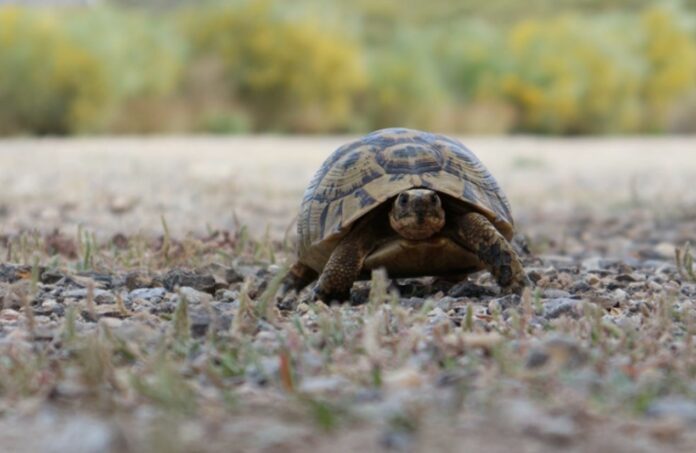Unique Traits Could Spell Trouble for Turtles and Crocodiles: Higher Risk of Extinction!
According to new research led by the University of Oxford, turtles and crocodiles with unique characteristics are at a higher risk of extinction. The study found that the most endangered species are those with unique life strategies that play critical roles in their ecosystems, and whose loss could have widespread impacts on other species.
Turtles and crocodiles are among the world’s most endangered animal groups, with approximately half of their species globally threatened. The study highlights the urgent need for greater understanding of which species are most threatened and why, to inform conservation efforts to protect them.
The findings (DOI: 10.1038/s41467-023-37089-5) were published in the journal Nature Communications.
The team of researchers simulated extinctions resulting from human-led threats and assessed their impact on species with different life strategies. Life strategy refers to how an organism allocates its resources and energy towards survival, reproduction, and growth. According to Professor Rob Salguero-Gómez, senior author of the research from the University of Oxford’s Department of Biology, the study’s key finding is that human threats affect species with particular life history strategies. For instance, unsustainable consumption of turtles and crocodiles mainly affects the longest-lived species with the largest clutch sizes, like sea turtles.
The study’s key findings are:
- If all turtles, tortoises, and crocodiles assessed as Critically Endangered by the IUCN went extinct, 13% of unique life strategies would be lost.
- Habitat loss is the primary threat to all turtle, tortoise, and crocodile species globally. This threat has the potential to cause double the functional diversity loss of any other threat examined.
- Climate change and global trade are also major threats affecting all species, regardless of their life history strategy.
- Species with unique life history strategies are particularly vulnerable to unsustainable local consumption, diseases, and pollution.
- ‘Slow’ life history species, characterized by late maturity and low offspring numbers, are especially vulnerable to threats from invasive species and diseases.
- Pollution is particularly associated with species with high reproductive output, such as freshwater turtles and saltwater crocodiles.
- Local consumption is a particular threat to species with higher clutch sizes and longer maximum lifespans, such as the Asian Giant tortoise.
The researchers express deep concern that the potential loss of turtles, tortoises, and crocodiles with unique life histories could have significant ecological implications. These species play vital roles in the ecosystem, including seed dispersal, habitat creation, and predator control. These functions have been developed over millions of years and are intimately tied to the diverse life strategies of these species. Many of these species are also charismatic, such as the ‘spur-thighed tortoise’ found in the Mediterranean basin in North Africa and Eastern Europe.
“The main threat to the viability of these groups of reptiles,” as explained by Lead author Dr. Roberto Rodriguez, “is habitat loss and fragmentation, which is especially common in species inhabiting the Northern hemisphere.
“The disappearance of wetlands, increasing urbanisation, and the development of intensive agriculture, which already have tangible effects, will likely continue to negatively affect these species and their ability to persist in the mid- to long-term.”
Dr. Molly Grace, co-author of the study and researcher at the Department of Biology, University of Oxford, explained that some threats to turtles and crocodiles had a more far-reaching impact. While sustainable use and trade of wildlife can sometimes benefit species conservation, the unsustainable trade of live animals or their parts threatens these reptiles worldwide, irrespective of their life history strategies.
She highlighted that the capture and trafficking of turtles were common for keeping them in captivity, while crocodile skin was of significant commercial interest. For instance, despite some controls on trade, Mugger crocodiles (Crocodylus palustris) in Pakistan are still illegally hunted for their skin.
The researchers stress the pressing need for efficient conservation management strategies that safeguard endangered species, their unique life history strategies, and functional diversity. They suggest incorporating functional diversity into conservation policies for these threatened groups as a promising approach to prioritize conservation efforts in the face of current and future threats.
“IUCN red lists of threatened species could incorporate information regarding the functional uniqueness to help managers make local decisions that would impact global conservation most efficiently,” adds Dr. Rob Salguero- Gómez.
The researchers suggest that those who are worried about the decline of turtles and crocodiles should refrain from buying products made from them and avoid keeping turtles and tortoises as pets. They also suggest supporting organizations working on conservation projects aimed at protecting the animals’ habitats and populations in the wild. Furthermore, responsible ecotourism or citizen science activities, such as volunteering programs or crowdsourced data collection, can also be beneficial in supporting turtle and crocodile conservation efforts.
Image Credit: Spur-thighed tortoise (Testudo graeca). Credit: Marcos Altuve
